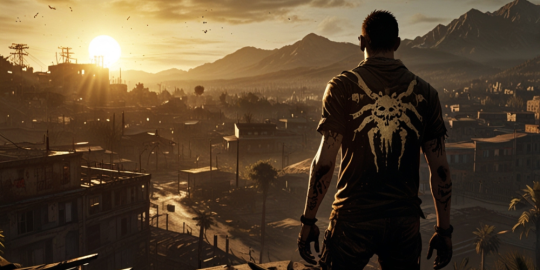
In the ever-evolving landscape of video game development, where players are often enamored with lengthy, expansive experiences, a noteworthy shift is taking place. Game developers are beginning to recognize that the demands of modern life may not align with the marathon sessions required to fully complete AAA titles. In this context, Tymon Smektała, the franchise director of Techland, has emerged with a refreshing perspective regarding the future of gaming. He suggests that shorter, more engaging experiences like the new standalone release, Dying Light: The Beast, could represent a harmonious middle ground that caters to both player lifestyles and the creative needs of developers.
Redefining Game Length: A New Era of Compact Experiences
The gaming industry has long been obsessed with the runtime of its offerings. However, as game audiences mature and the pace of everyday life quickens, many players find it increasingly challenging to allocate 50-100 hours to complete vast open-world adventures. Smektała's statement about Dying Light: The Beast, which boasts a playtime of "18+ hours," emphasizes an innovative model that blends the depth of experience with a more manageable commitment. This upcoming title seems a clear departure from the conventional expectation of endless hours of gameplay.
Reflecting on his own experiences, Smektała mentions popular titles like Assassin's Creed Odyssey, which demands an extraordinary time investment. After spending 100 hours on the game, many players still find themselves stuck with unfinished quests. For many, balancing life's responsibilities with the gaming world's increasing demands has become a real struggle. Smektała's insight suggests that as players grow older, the industry might need to adapt to ensure its offerings remain relevant.
The Appeal of the Compact Game
So what exactly does the industry gain from shorter, more focused games? Smektała firmly believes that compact titles create opportunities for developers to take creative risks without the burden of monumental budgets and extensive timelines. He states that when studios are free from the gravitational pull of large-scale AAA development – which typically involves a significant workforce spread over several years – they can explore innovative ideas and concepts without the fear of failure that comes with massive financial stakes.
In characterizing Dying Light: The Beast as "more compact," Smektała draws a parallel to a fine cup of coffee: while it may not fill a large cup, the richness of flavor remains intact. This analogy underlines the focus on delivering quality and depth in a more succinct format. The implication is clear: focusing on quality over quantity could very well pave the way for a new standard in gaming, one that prioritizes player satisfaction without requiring endless hours of commitment.
The Shift in Development Trends
The gaming industry has historically been dominated by massive titles, but there is a growing recognition that smaller games can thrive alongside their behemoth counterparts. Take Marvel's Spider-Man: Miles Morales and Ubisoft's Assassin's Creed: Mirage, for instance. Both demonstrated that offering a condensed yet fulfilling gaming experience is not only feasible but can be exceptionally rewarding for players.
Smektała’s arguments resonate with a broader sentiment shared by various creators, including Josh Sawyer of Obsidian Entertainment. Sawyer has noted that developing smaller games can alleviate burnout among staff, enhance employee retention, and fuel creativity in larger projects. He cites titles like Pentiment and Grounded as key contributors to evolving the studio's vision, thereby highlighting a growing trend within the space.
The Next Level of Interactive Entertainment
As the conversation around the design and execution of games continues to evolve, developers are recognizing the potential in this shift towards shorter experiences. By understanding the limitations their audience faces, developers can take bold strides in reshaping how games are both created and consumed. Smektała underscores the point that engaging players in meaningful ways is paramount, and shorter experiences can still deliver that desired level of interaction despite their brevity.
Capcom’s Kunitsu-Gami: Path of the Goddess is yet another instance of how smaller games can deliver substantial enjoyment reminiscent of classic gaming eras. By invoking nostalgia while also pushing creative boundaries, titles like this create a unique balance that resonates with both new and seasoned gamers alike.
Conclusion: The Future Lies Ahead
As the gaming community navigates an increasingly fast-paced world, the paradigm is shifting. The appetite for smaller, more engaging games offers a refreshing antidote to the saturation of lengthy AAA titles. Developers like Smektała and studios such as Techland are keenly aware of this movement and are placing their bets on the adaptable model of compact gaming experiences to cater to evolving player needs. Ultimately, as the industry continues to innovate and push boundaries, we can expect to see a landscape rich with diversity, creativity, and a more profound understanding of what players truly want. The future of interactive entertainment is poised for something refreshing, and it has never looked more inviting.








